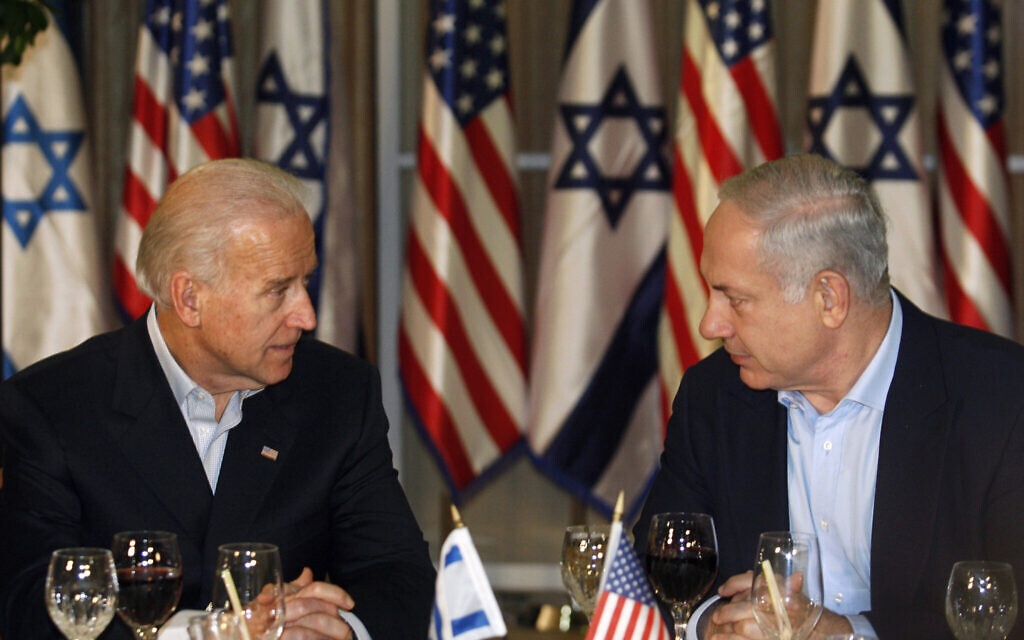IN THE MEDIA
What we can expect from President Biden
January 22, 2021 | Ahron Shapiro

This article was originally published in the Australian Jewish News – 22 January 2021
Incoming US President Joe Biden’s administration is taking shape. For a variety of reasons, and barring major diplomatic missteps, it appears unlikely to revert to the open friction that typified top-level US-Israel relations during the last Democratic administration under Barack Obama – and particularly his second term.
However, much will depend on how Israel’s Government handles its disagreements with Biden’s expected policies, in keeping with Democratic party norms, on how to deal with the Iranian nuclear threat, construction in Israel’s West Bank settlements, and Israel’s attitude towards the Palestinians.
Like Biden, officials likely to liaise most with the Israelis, including Secretary of State Antony Blinken, National Security Advisor Jake Sullivan and Secretary of Defense Lloyd Austin, are realists in keeping with Biden’s own Democratic centrist worldview. They can be expected to maintain the defence cooperation between the US and Israel that is the cornerstone of US-Israel ties.
Vice President Kamala Harris, a progressive-leaning senator chosen to balance the ticket, is not expected to have much influence on decision-making in general. In any case, her history suggests she is positively disposed toward Israel.
The Biden Administration has said it will re-join the 2015 Iranian nuclear deal outgoing US President Donald Trump withdrew from in 2018, and several key Biden appointments, including Wendy Sherman, William Burns and Avril Haines, were architects of that agreement. However, any such return will take months at least since the sanctions Trump put in place will be difficult to remove and Iran would have to return to compliance as well.
Israeli Prime Minister Binyamin Netanyahu, his potential successors, and most of the Israeli defence establishment would rather the Biden Administration maintain sanctions pressure so that Iran will have no choice but renegotiate a deal that would close the patchwork of loopholes, omissions and sunset clauses that so fatally marred the original nuclear deal.
Biden has said he wants to “improve and extend” the 2015 Iranian nuclear deal – a tactful acknowledgement that Obama’s deal was lacking, though his talk of removing sanctions before renegotiation seems to risk removing any incentive for Iran to agree to such improvements.
After four years of near complete agreement, Israel will again find herself in the position of trying to sway White House policies on Iran. It can choose to do so behind closed doors, publicly or both, keenly aware that the manner that this dialogue takes place can impact not only its effectiveness but also the way Israel is treated by the new president and his officials on a broader front.
For Israel’s settlement movement, which was not only tolerated but almost celebrated under Trump, Biden’s inauguration almost certainly portends a major jolt back to the reality of decades of US policy. Whatever window Israel had for extending sovereignty to the Jordan Valley and other areas of the West Bank is closed. Biden, never a supporter of settlements, will be under immense pressure from liberal groups – progressive Jewish and Israeli ones among them – to condemn every approval of settlement housing.
It is also doubtful that the bulk of Trump team’s vision of peace between Israel and the Palestinians will be retained, though its core concept of dealing with the Palestinian peace track as part of a regional initiative may catch on. This is the Outside/In model, superseding the now discredited notion that peace with Palestinians was essential before any Israeli normalisation with the Arab world could take place.
That is not to say all of Trump’s pro-Israel moves will be wound back. Biden has stated he won’t move the US Embassy in Israel back to Tel Aviv and few expect Biden to revisit US recognition of Israeli sovereignty over the Golan Heights.
Biden has also expressed support for building upon the achievements of the previous administration in terms of promoting peace and normalisation between Israel and the Arab world, independently of the Palestinian issue.
A significant unknown that will affect the Biden Administration’s relationship with Israel will be the composition and policy platform of any coalition that emerges from Israel’s March election, and whether Netanyahu – increasingly unpopular with US Democrats due to his warm relationship with Trump – remains Israel’s leader.
Biden’s personal relationship with Israel is exceptionally long, but in recent years he has been more guarded about sharing his views candidly. As a senator from 1973 to 2009, Biden was Israel’s outspoken friend with close ties to the pro-Israel lobby AIPAC. As vice president, Biden took care not to say or do anything to undermine Obama while in office.
Much has changed since Biden spoke with the autonomy of a senator, particularly the increasing volume of Israel critics among Democrats. Therefore, Biden’s underlying attitudes towards today’s Israel are not altogether clear.
His campaign platform promised a return to bipartisan US support for Israel, something very much in Israel’s interests. However, this will require some concessions by Israel. In return, Israel will be asking for the Biden administration to be understanding about and receptive to Israel’s own concerns about security issues such as Iran, and willing to consider a more nuanced approach to the Palestinians, and settlements, than Israel received under Obama.
Tags: Biden, Iran, Israel, JCPOA, Kamala Harris, Palestinians, settlements





